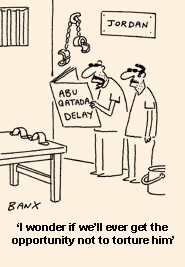What if the Gipper led the 2012 GOP?
Roula Khalaf, Editor of the FT, selects her favourite stories in this weekly newsletter.
American conservatism has no greater icon than Ronald Reagan, invoked at every turn. There can be little doubt he would be its nominee ahead of this year’s crop. He could have harnessed the Tea Party’s energies easily, as none of the many candidates this season succeeded in doing. His credentials as a two-term Governor of California, merely the largest state, would have reassured the party establishment, even though it is much weaker now than it was. The Golden State, after all, is not Massachusetts, the cross Mitt Romney now has to bear, that den of the Kennedys and the only state to vote for George McGovern in 1972.
But would the 40th president and the great hero of the Republican Right recognise the party of 2012? Mr Reagan campaigned for office as the staunchest of conservatives, promising to cut taxes, strengthen national defences and generally make America proud again, but he governed with a surprising degree of flexibility, not a characteristic of his party these days.
He did cut taxes early in his term, logically enough, even Keynesian, given the serious recession of 1981-82. But he acceded to increases in 1986, when the economy had improved. He also presided over an eightfold increase in the federal budget deficit, prompting vice-president Dick Cheney immortally to say later “Ronald Reagan taught us that deficits do not matter.” That is not exactly the currency of the Republican realm today.
He did declare verbal war on “the evil empire” that was the Soviet Union and embarked on the strategic defence initiative (Star Wars) at considerable cost. But he had this persistent dream of a nuclear-free world, witnessed by the abortive negotiations in 1982 in Vienna, known as “the walk in the woods,” and at the Reykjavik summit with Mikhail Gorbachev in 1985.
He waged only one war, against puny Grenada in 1982, and at least tried to talk to Ayatollah Khomeini’s Iran, though the methods employed in the Iran-Contra affair were both dubious and illegal. That has to be contrasted with the belligerence of current Republicans.

In 1986, he signed into law the Simpson-Mazzoli immigration reform act, which, inter alia, brought an estimated 3m illegal aliens out of the shadows. Former congressman “Ron” Mazzoli, a Democrat from New Jersey, was in Washington last week and recalled how bipartisanship worked in those days, with presidential blessing, with the caustic Senator Alan Simpson, the Wyoming Republican, playing the tough guy and he spreading sweetness and light.
But it worked, as it never would now. If Republicans fare badly in November, it will be in part because their uncompromising opposition to any kind of amnesty for illegal immigrants, often morphing into xenophobia, has kissed off any chance of winning a respectable share of the growing Hispanic vote.
Reagan would not have understood this, any more than he would the refusal of one party to talk to the other. This was a man who knocked off after-hours whisky with “Tip” O’Neill, the Democratic Speaker of the House. John Boehner, the current Republican occupant, did once play golf with President Barack Obama and was pilloried by his own party for doing so. They have not linked up since.
He did appoint some ideologues to his administration, but it was also notable that he got rid of them – David Stockman, his first budget director, James Watt, secretary of the interior and Alexander Haig, the erratic secretary of state. He came to rely more and more on the pragmatists, George Shultz in charge of foreign policy and the “fabulous Baker boys”, James and Howard, to keep the train on track. Today, all three would be considered Rinos (Republicans in name only).
Finally it is worth enumerating all the things Mr Reagan might have done but did not. He did not abolish the Environmental Protection Agency or the Department of Education, as his rightwing then advocated. He did not take any moves to outlaw abortion at home, even though he courted the religious right, then seriously beginning to feel its political oats.
In sum, he might recognise the Republican party of today but he also might have taken parts of it “to the woodshed”, as he did Mr Stockman, or told its more vocal absolutists “there you go, again,” as he did, to great effect, President Jimmy Carter in their climactic debate. And in such circumstances Republicans would still have loved him, regardless.
Comments